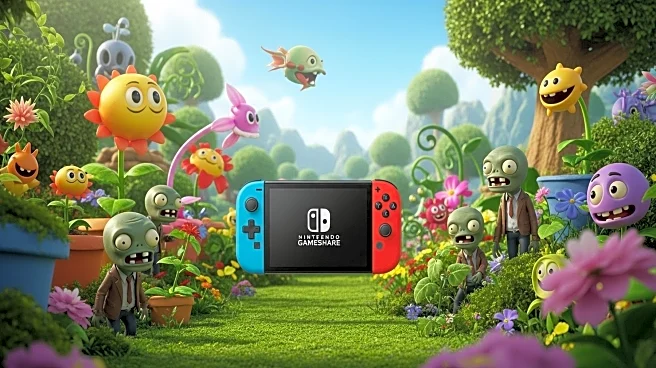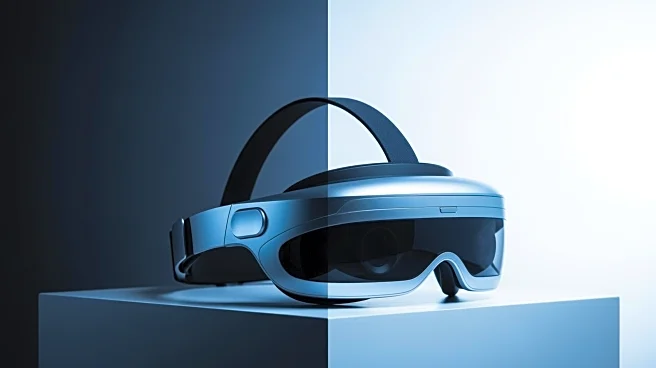What's Happening?
Nintendo has announced the return of the popular tower defense game, Plants vs. Zombies, with a new version titled 'Plants vs. Zombies: Replanted' set to release on the Switch and Switch 2 later this month. A recent gameplay trailer highlights the introduction of the GameShare feature, which allows two players to engage in Local Co-Op or PvP gameplay. The GameShare session must be initiated by the Switch 2 system, and users can only access the shared software during the session. This feature aims to enhance multiplayer experiences by enabling shared gameplay without requiring multiple copies of the game.
Why It's Important?
The introduction of the GameShare feature is significant as it represents Nintendo's continued efforts to innovate and enhance multiplayer gaming experiences on its platforms. By allowing players to share games locally, Nintendo is addressing the demand for more accessible and cost-effective multiplayer options. This could potentially increase the appeal of the Switch 2 among gamers who prioritize social and cooperative gameplay. Additionally, the return of Plants vs. Zombies, a well-loved franchise, is likely to attract both new and returning players, boosting engagement and sales for Nintendo's gaming consoles.
What's Next?
As the release date for Plants vs. Zombies: Replanted approaches, Nintendo is expected to continue promoting the GameShare feature to maximize its impact. The company may also explore expanding this feature to other games, potentially setting a new standard for multiplayer gaming on the Switch 2. Gamers and industry analysts will be watching closely to see how this feature influences sales and user engagement. Furthermore, feedback from players will likely guide future updates and enhancements to the GameShare functionality.
Beyond the Headlines
The GameShare feature could have broader implications for the gaming industry, encouraging other companies to adopt similar strategies to enhance multiplayer experiences. This move by Nintendo may also influence the development of future games, with developers considering how to integrate shared gameplay features from the outset. Additionally, the success of this feature could lead to increased collaboration between hardware and software developers to create more seamless and integrated gaming experiences.









